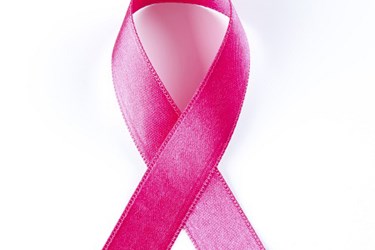New Immunotherapy Vaccine Developed For HER2 Positive Breast Cancer
By C. Rajan, contributing writer

Researchers at the University of Texas MD Anderson Cancer Center have developed a new and promising immunotherapy breast cancer vaccine candidate, GP2, which prevents disease recurrence in high-risk patients, especially in combination with a powerful immunotherapy drug.
The GP2 vaccine was tested in a phase II randomized trial with 190 patients having varying levels of HER2, an oncoprotein promoting tumor growth which is expressed in 75 to 80 percent of breast cancers. The study used the GP2 vaccine, which is designed to stimulate CD8+ cells, in combination with an immune stimulant (GM-CSF). The patients were monitored for nearly three years for disease progression and recurrence.
The findings indicate that GP2 is safe and effective for breast cancer patients. For all 190 patients, the disease-free survival (DFS) rate was 88 percent, representing a reduction in recurrence by 57 percent.
In addition, patients who had the highest over-expression of HER2 had no breast cancer recurrences when they were administered the vaccine after being treated with trastuzumab (Herceptin), an immunotherapy monoclonal antibody. Researchers believe that the trastuzumab likely acts as a primer for the vaccine by initiating an antibody response to fight the cancer cells. It appears that trastuzumab prepares the immune system, therefore making the vaccine even more effective. MD Anderson is now testing this combination of immunotherapies in other clinical trials.
"This is an important and different avenue in immunotherapy research, in that we are investigating ways to prevent cancer recurrence by stimulating the immune system to treat cancer," said Elizabeth Mittendorf, M.D., Ph.D., principal investigator of the study and associate professor of Surgical Oncology at MD Anderson. "The ultimate goal is to develop a preventative tool that will minimize the risk of recurrence in women who have already had breast cancer and for whom standard therapies have failed."
Previous research at MD Anderson on other breast cancer vaccines support the immunotherapy approach of the GP2 study. Another similar vaccine developed by the researchers, AE37, showed a significant immune response and improved recurrence rates in triple-negative breast cancer patients. There is also an immunotherapy breast cancer vaccine candidate in clinical development, NeuVax (Nelipepimut-S, Galena Pharma), which showed a 50 percent decrease in recurrence of breast cancer in high-risk patients. NeuVax is currently being investigated in a phase 3 clinical trial.
"We believe many more patients will benefit in some way from immunotherapy," says Mittendorf. "The challenge will be identifying the right immunotherapeutic approach for each individual patient. When doctors are able to do that, cancer therapy, and immunotherapy specifically, will follow a more personalized approach."
The researchers will be presenting the findings of this study at the 2014 American Society of Clinical Oncology's Breast Cancer Symposium in San Francisco
